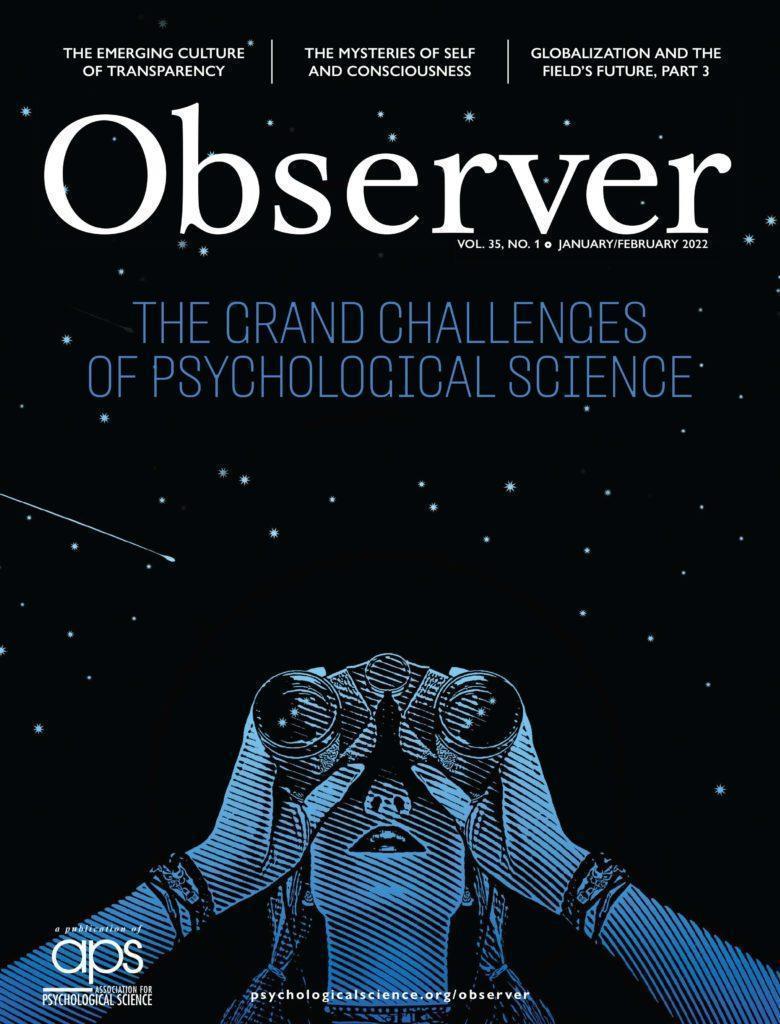Write for Us!

How can I contribute? • What makes a good piece? • Query first • How do I query? • What happens next?
Contributor guidelines
The Observer is the online magazine of the Association for Psychological Science and covers matters affecting the research, academic, and applied disciplines of psychology. The magazine reports on issues of interest to psychologist scientists worldwide and disseminates information about the activities, policies, and scientific values of APS.
APS members receive a monthly Observer newsletter that covers the latest content in the magazine. Members also may access the online archive of Observer articles going back to 1988.
The Observer’s primary audience is APS members, but its influence reaches a much wider global audience through its digital presence. More than 4.6 million people, including students and teachers, policymakers, and the media, visit the APS website every year.
Please note: The Observer is not peer-reviewed in the sense of an academic journal, but we do edit—sometimes heavily—and several professional editors and psychological scientists review each piece. You will be able to review your edited article before it is published.
How can I contribute?
Writing for the Observer is a great way for APS members to share timely and relevant research, insights about how the science is changing the world (and the world is changing the science), profiles of leaders and change agents within the psychological science community, and viewpoint essays on what might need to change. We publish a wide range of feature articles (2,000–2,500 words), news articles (500–800 words), interviews with psychological scientists doing interesting work, and audio and video content featuring scientists and their work.
Learn more about specific content types by visiting the About the Observer page.
What makes a good piece?
Our readers want engaging, behind-the-scenes descriptions of how research gets done, insights into the scientific questions and why they matter, and perspectives on how scientific culture should progress to more effectively address the challenges of a changing world.
Our style is straightforward and nontechnical, and accuracy is vital. Longer, academic articles based on original research might be a better fit for any one of APS’s six peer-reviewed journals. Learn more about the APS journals here.
Query first

If you have an idea for a story, don’t send a completed manuscript. Instead, send us an email describing what you have in mind, why the topic is important, and how it is relevant to our audience.
Pitching to write about a topic isn’t enough: What is the story you’re going to tell us? What kind of takeaway should readers have? Ultimately, readers should enjoy reading your piece. Your pitch should not only explain what the story is and why it is important but show how you’ll tell it in a compelling way. In addition, when you pitch a story to the Observer, we will take it to imply that the story has not already been published or submitted elsewhere.
We’ll do our best to review and respond to your query within a week.
How do I query?
Send no more than 400 words outlining the key points the proposed article will explore, why this article is important for APS members, and what scientific research and other sources will support it. Include authors’ name(s) and affiliation(s).
Email this information to [email protected]. Please include “ARTICLE QUERY” in the subject line of your email.
What happens next?
The APS Communications Team will review and respond to your query as expeditiously as possible, ideally within one week, if we decide to move forward with your idea. After you submit your draft, per the dates above, we will review internally, edit, and send it back to you for final review. Please note that we reserve the right to reject an article even after it has been accepted if it becomes apparent that there are problems with its scientific content or other issues germane to its credibility or appropriateness.

